FACTSHEET
RESEARCH MASTER’S PROGRAMME RELIGIOUS STUDIES
We hope you have great expectations for your time with us. So have we! We cannot wait to welcome you as members of our research community here in Utrecht. In the first week of the new academic year we want to welcome you in our programme. You will get to know teachers whose courses you are going to take, some of the research projects that we are engaged in and in which we want to engage you too. We will introduce you to our approach towards the study of religion and listen to your expectations and wishes. And of course, you are going to get to know your fellow students!
This fact sheet is meant as a guide to accompany you after the first excitement of the introduction is over. The first semester is devoted to courses that will give you a thorough grounding in the field of Religious Studies, but you would do well to start mapping your own course towards the specialisation you want to pursue. Of course we will guide you in this process in person, but here you can find an overview of some of the choices that are open to you and the range of learning experiences we have to offer.
Much of the information you might possibly want is on the UU-website. But because ‘almost everything’ is there, the answers to everyday questions may be hard to find at first. In many cases the best thing to do is sending me an e-mail with your questions or making an appointment so that we can sort out things and solve possible problems. I certainly do not know all the answers to your questions, but usually I do know who to approach to get the answer.
Let me use this opportunity to wish you a great time in Utrecht, in the Department of Philosophy and Religious Studies.
Pooyan Tamimi Arab Programme coordinator
D R P OOYAN T AMIMI A RAB is Assistant Professor of Religious Studies in the Department of Philosophy and Religious Studies and coordinator of the Research Master's Programme Religious Studies. If you have any questions related to this programme, please do not hesitate to contact him at any time.
CHECK OUT OUR WEBSITE
Dr. Pooyan Tamimi Arab p.tamimiarab@uu.nl
I am Assistant Professor of Religious Studies in the Department of Philosophy and Religious Studies and coordinator of the Research Master's Programme Religious Studies. If you have any
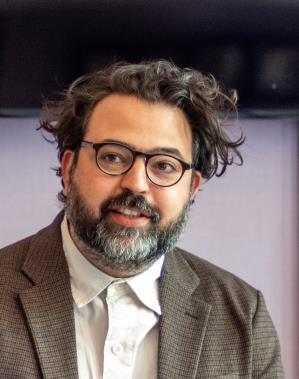
THIS PROGRAMME
The programme combines a thorough grounding in the central themes and theories of the study of religion with ample opportunity for specialisation. You can develop your specific expertise in one of the key research areas of our institute such as:
Religious texts and interpretive practices: the study of religious traditions from the perspective of sacred texts; their interpretation and the religious rituals and practices associated with them; discussions about the authority of religious texts.
Materiality and corporeality of lived religion: the study of the use of the body and the senses in practices like praying, dancing, or fasting; the function of objects such as images, food, and clothing, within the context of religious practices and public controversies.
Religious diversity in contexts of globalisation and migration: the role of religion in public controversies and political developments concerning, for instance, gender equality, migration, and sociocultural transformation.
You can also choose to develop your expertise in other areas such as religious heritage, religion and gender, religion and popular culture and religion and secularism
Here at Utrecht University, we approach religion as a human practice and a cultural, social, and historical phenomenon. Religion interacts with countless other practices as well as social and cultural phenomena (e.g. art, media, economy, morality, politics) and influences these. However, religion is itself transformed by these interactions. This is why this multidisciplinary programme has a strong emphasis on methodology: you learn to work with theories and methods from Anthropology, History, Philosophy, Comparative Literature, and Media Studies.
This Research Master is embedded within an internationally leading research institute that hosts many research projects and activities such as colloquia and international conferences. As a student of this programme you will be part of an international community of students, PhD researchers, postdocs, and renowned senior scholars. Your professors educate you in small-scale seminars, and actively involve you in their own research. They will help you to develop your own international network.
COURSE PLANNER: You will find more information on this programme’s courses in the Course Planner:
https://cursusplanner.science. uu.nl/english/study/AC-RLSM19


LEARNING GOALS AND OBJECTIVES
As a graduate of this programme you will have developed:
✓ a broad understanding of the field of Religious Studies;
✓ thorough knowledge and methodological skills in a specific subfield of your choosing;
✓ the knowledge and skills to present research results orally and in writing;
✓ an international network of junior and senior scholars of Religious Studies.
✓ Your studies will equip you for future research positions, for example in the form of a PhD, whether in Religious Studies or related disciplines such as Islamic Studies or Anthropology, or for a career in one of the many fields that require advanced research skills.
DO YOU WANT TO GET INVOLVED?
Our university offers ample opportunities to be involved in research activities as well as in university politics and committees related to educational procedures
Research projects and conferences
As Research Master students you are a member of the research community at our department. You are going to participate in our research colloquia, in conferences and symposia at different places in the Netherlands and possibly even abroad. Our department supports such activities with conference grants. If you want to develop your expertise in the direction of one of the research projects at our department, you can also participate in activities of these projects like small scale colloquia and reading groups. Sometimes it is also possible to apply for a position as student assistant to help us, for example, organise events and meetings, take care of communication tasks, and assist in conducting research
Graduate School Conference and Graduate Journal
PhD candidates and research master students in the Utrecht Faculty of Humanities run the Graduate Journal, Junctions It is an open access, peer-reviewed journal that accepts articles and book reviews. Here you can take first steps in developing skills involved in publishing, reviewing, and editing, and the journal is a good opportunity to get some of your papers published: http://junctionsjournal.org/
The Humanities Graduate School Conference is a conference by and for PhD candidates and Research Master students at the Faculty of Humanities. It provides an interdisciplinary forum to strengthen the academic community within the Graduate School. Furthermore, the conference allows students and PhDs to obtain valuable experience in presenting and discussing their own work.
Curriculum Committee
Together with three other programmes, our Research Master’s Programme is supported by a Curriculum Committee that guards the quality of the programmes and courses. The Curriculum Committee includes student members as well. If you are interested in learning about university policies, this might be a good opportunity. More information about the Curriculum Committee: https://students.uu.nl/en/hum/religiousstudies/student-life/have-your-say-in-our-education
■ ■ ■
D R . C HRISTOPH B AUMGARTNER Research Institute Director. Ethics, religious diversity, freedom of religion, secularity, environment and climate change.
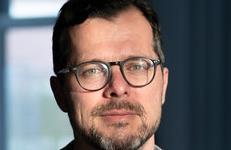
■ ■ ■
P ROF DR C HRISTIAN L ANGE Arabic and Islamic Studies, Islamic theology, law and legal theory, Islamic mysticism, Digital Humanities. Project the senses in Islam: https://sensis.sites.uu.nl/
■ ■ ■
P ROF . DR . B IRGIT M EYER Anthropology of religion and material religion, religion in (West) Africa. Project Religious Matters in an Entangled World: https://religiousmatters.nl/.
■ ■ ■
D R . M ARGREET VAN E S Religion, conflict and reconciliation, violence, memory studies.
■ ■ ■
D R L UCIEN VAN L IERE Director of Studies. Religion, conflict and reconciliation, violence, memory studies.
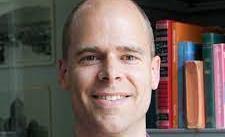
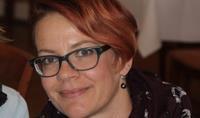


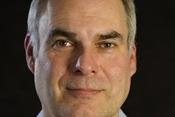
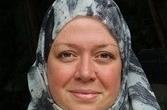
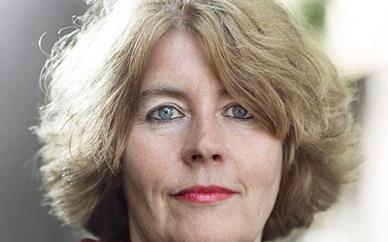
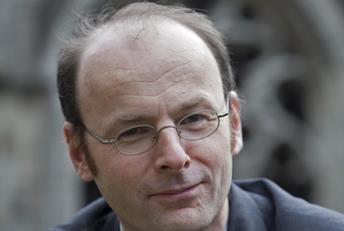
■ ■ ■
D R . E RIC O TTENHEIJM

Early Christianity, Rabbinic Judaism, parables, interreligious dialogue.
■ ■ ■
D R P OOYAN T AMIMI A RAB Programme Coordinator. Anthropology and sociology of religious diversity, material religion, political philosophy, secularism, religious tolerance, Netherlands, Iran.
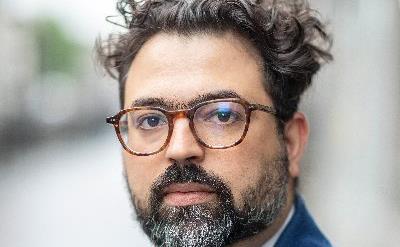
■ ■ ■
P ROF D R A NNE - M ARIE K ORTE Religion, gender and sexuality, conversion to and from religions, blasphemy and miracles.
■ ■ ■
E RIK M EINEMA
Religion, conflict and peacebuilding, youth, Kenya.
■ ■ ■
D R K ATJA R AKOW
Tibetan Buddhism in the West, Pentecostalism and Christian mega-churches, religion in popular culture.
■ ■ ■
D R . J OAS W AGEMAKERS
Intellectual history of modern Islam, with a focus on political thinking among Salafis and Islamists, Jordan and Saudi Arabia.
THE TEAM
STUDY ADVISOR
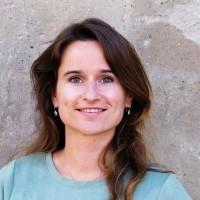
Facing issues with your studies? Our study advisors are there to help and support you to successfully complete your degree. They can act as confidential counsellors, advise on issues regarding illness and special circumstances and, together with you, look at the possibility to cope with the studies while dealing with disabilities or chronic illnesses. They can also help with specific arrangements and procedures such as complaints, objections, and appeals. You can find more information on the university website at: https://students.uu.nl/en/hum/religious-studies/practical-information/advising-and-counselling ■
M ARLOES
AMMERTS Janskerkhof 13
Room 0.12
3512 BL Utrecht
studieadviesfenr.gw@uu.nl
STUDENT INFORMATION DESK HUMANITIES
At the Student Information Desk you can address all kinds of study-related issues such as course enrolment, time schedules, registration of course results, and graduation. You can also have your diploma and study results authenticated and apply for exemptions there. Please clearly state your name and student number in every communication.
STUDENT SERVICES
You can contact Student Services for information and advice. This includes for example issues regarding admission, application and enrolment, tuition fees, financial assistance, having a paid job during your programme, insurance, schemes and facilities for outstanding student athletes, student housing, student organisations and information about studying with a disability or chronic illness.
■ ■
L
■ ■ S TUDENT I NFORMATION D ESK H UMANITIES
■
■ ■ ■ S TUDENT S ERVICES
DATES AND DEADLINES
Week 35 (September 4 - September 8, 2023) is an important week. Several meetings and activities will be scheduled to immerse you in our research community, the university, and the city. You will meet the teaching staff and your tutor.
Sometime in October, the International Office organises a session for master students who consider going abroad for some time. You will receive an an invitation to this event. The application deadline for exchange positions is usually December 1, so use this opportunity to get informed about procedures and possibilities.
At least once every year all students and teachers involved in the programme as well as members of the support staff are invited for an open conversation on the strengths and weaknesses of the programme, to gauge your overall satisfaction and to hear feedback and suggestions. These moments are valuable not only for you, but for everybody concerned and for the future of the programme as well. Your presence at these occasions is highly appreciated!
INTERNSHIP
One of the options open to you in the first semester of your second year is to do a research internship at a Dutch or foreign university or research institute. You will have to arrange your internship yourself, but your tutor and/or thesis supervisor can help you find one. You can also decide to do an internship at a nongovernmental organisation, a government agency or a cultural institution, provided your work there includes training in research. You will be coached by one of our staff. An internship is a good way to expand your professional network. If you want to do an internship outside Utrecht or abroad, it is recommended to explore possibilities for an internship within the research networks of our staff. Feel free to ask professors questions about internships even if you have never spoken to them before.
Never accept an internship without prior approval by the programme coordinator. The programme coordinator will decide in advance whether an internship meets the necessary requirements: whether your role is clear, whether the internship represents a challenge for you, and whether you will receive sufficient supervision at the organisation concerned. All this has to be worked out in advance between the supervisor, the organisation where you will go, and yourself, and detailed in a binding contract, the Learning Agreement The supervisor at the university and the supervisor in the organisation will together assess your internship before awarding study credits
If you want to do an internship, ideally in the first semester of your second year, you and your tutor or advisor should start planning early. Specific information on research internships, including procedures for enrolling, credit points related to length of stay, coaching, reporting and a model Learning Agreement can be found in the Research Internship Manual.
N.B.: Once you have handed in the Learning Agreement at the Student Information Desk Humanities, you will be enrolled for the internship. This does not happen through Osiris!
Fieldwork
Another option for the first semester of your second year is to do fieldwork. During fieldwork as well, you will be coached by one of our staff, normally your designated thesis advisor.
Fieldwork allows you to train and enhance competences in the application of relevant scientific theories and concepts, and the application of methodological skills to a research topic. The project should be based on a detailed research proposal written in the Research Design section of the course Doing Research in Religious Studies. You are free to choose your subject, approach, and location of research, as long as these fall within the general scope of the Research Master Religious Studies. You will have to privately arrange your fieldwork and with the help of your thesis supervisor. Permission to go on fieldwork will depend on approval of the research proposal and on a positive assessment by the supervisor and programme coordinator about its feasibility and safety in the chosen country or location. Fieldwork will be assessed separately.
If you want to do fieldwork, in the first semester of your second year, you and your advisor should start planning early.
N.B.: Once you have handed in the contract at the Student Desk you will be enrolled for a period of fieldwork. This does not happen through Osiris!
More information
https://students.uu.nl/en/hum/religious-studies/curriculum/internships
THESIS
Your programme will be concluded with a thesis. The thesis is the final test to determine whether you have mastered the knowledge, insight, and skills required for a junior scholar of religious studies. The thesis should be around 35.000 words in length and counts for 30 EC. The thesis is the last ‘course’ in the Master programme.
You do independent research on a subject of your choice, building upon the knowledge and experience gained in course work, internship, or fieldwork. Your thesis can be purely academic but can also contribute to practical solutions for pressing societal questions. Your research for the thesis as well as writing the thesis will be supervised by your advisor/tutor. Please consult and use the Writing Guide, which provides guidelines for the organisation of your thesis, the required formatting, and the criteria it has to meet and on which it will be evaluated.
In the course of writing, in the second semester of your second year you will also attend a ‘thesis lab’: a series of sessions in which you discuss your progress, your triumphs and frustrations, with your fellow students. Feedback, not only from your advisor but also from your peers, and of course mutual support are invaluable. In May or June of each year a colloquium will be organised where junior and senior researchers as well as research master students present their work. Part of this conference will be a poster session, where first-year Research Master students will present their thesis outlines.
More information
https://students.uu.nl/en/hum/religious-studies/curriculum/masters-thesis
PARTNER ORGANISATION(S)
As Utrecht students and scholars in the study of religion, we are part of a wider network of institutions. Our partners in this field are the national research schools NISIS and NOSTER, sister organisations in the Netherlands that organise part of your training; the Utrecht research master CASTOR and the Dutch discussion platform for scholarly exchange in Religious Studies NGG. The following list presents those partners that we think may be of direct use to you.
NISIS (Netherlands Interuniversity School for Islamic Studies)
https://nisis.sites.uu.nl/
Executive manager: Sara Muller
Email: nisis@uu.nl
NOSTER (Netherlands School for Advanced Studies in Theology and Religion)
www.noster.org
Executive secretary: dr. Marco Derks
Email: noster@ru.nl
Department of History and Religious Studies at the University of Amsterdam
The introductory course Theories and Methods in the Study of Religion is organised jointly by the religious studies departments of the universities of Utrecht and Amsterdam. In this course you will get to know several UvA staff members and of course fellow research master students. You can take electives from the programme at the UvA as well. Courses that reflect the defining areas of expertise of the Amsterdam staff are ‘Western Esotericism and its Scholars’, ‘Religious Experience’, and ‘Polemics and Politics of Religious Identity’.
The programme coordinator of the research master in Amsterdam is dr. Ulrike Popp.
Centre for the Study of Religion, Leiden University
Courses taught in the Master Religious Studies at Leiden University can be taken as electives. Members of the Centre for the Study of Religion will contribute to annual conferences in which you will participate as research master students. This Centre overlaps with the Leiden University Center for the Study of Islam and Society.
www.universiteitleiden.nl/en/humanities/centre-for-the-study-of-religion
NGG (Nederlands Genootschap voor Godsdienstwetenschap)
NGG is primarily a discussion platform for senior staff and PhD-students, but it also regularly organises lectures, workshops and conferences where research master students are also welcome. Keep an eye on the website!
www.godsdienstwetenschap.nl
Email: info@godsdienstwetenschap.nl
Our staff and the University foster contacts with colleagues and institutions abroad. You will meet some of these people as guest lecturers. Depending on your specific interests, these partners further afield may be just the ones with whom you will want to study or possibly do a research internship.
IMPORTANT FOR HUMANITIES STUDENTS
New students students.uu.nl/hum-new Practical information for new students at the Humanities faculty.
Academic calendar students.uu.nl/hum-calendar
Information about days off, course registrations and change-of-enrolment days.
UU online

Information about our online systems and how to log in: students.uu.nl/hum-online In need of a manual? IT manuals: https://manuals.uu.nl/en
REGISTRATION, PROCEDURES, INTERNSHIP INFO
Student Information Desk Humanities students.uu.nl/hum-contact
Programme related matters, such as
• course registration
• course schedules
• study results & study progress (Osiris)
• graduation
Student Services students.uu.nl/en/contact/student-services
Studying at Utrecht University in general:
• registration as a UU student

• tuition fees
• elite athletes
• disability or chronic illness
Internship coordinator students.uu.nl/hum-internshipcoordinator


Information about:
• guidelines and procedures
• internship placements
QUESTIONS ABOUT ENTERING THE JOB MARKET
Career Services students.uu.nl/hum-careerservices
Advice on getting a job after graduation through workshops, CV check-up, and coaching. Your programme coordinator will inform you about programme-specific events.
NEED EXTRA HELP?
Study advisor: students.uu.nl/hum-studyadvisor




Student psychologist: students.uu.nl/psychologist
Workshops: Skills Lab: students.uu.nl/en-skillslab
THINKING OF GOING ABROAD?
International office Humanities: students.uu.nl/hum-io
OTHER FACILITIES
University Library: students.uu.nl/hum-library
Olympos sports centre: olympos.nl/en-us/home.aspx
Parnassos cultural centre: uu.nl/en/parnassos
FACT! You can find your grades, student card and timetable in the MyUU portal and the MyUU app: students.uu.nl/en/myuu and students.uu.nl/en/ myuu-app
FACT! In the second semester, you will have to register in Osiris for courses you wish to attend. If you want to switch courses, you can do so on the change-ofenrolment days before the start of the relevant block.
FACT! Deadlines are always listed in the course syllabus, which your lecturer will provide approximately 2 weeks prior to the course’s ’start.
FACT! If you need more information about specific aspects of your programme, e.g. internships or thesis, please see the Curriculum page on the programme website via students.uu.nl/hum.
FACT! Check students. uu.nl/hum-studentlife for information about living, jobs, sports and leisure in Utrecht!
© June 2022. Utrecht University, Faculty of Humanities. Every effort has been made to ensure that the information presented in this factsheet is correct and up to date Utrecht University cannot be held liable for any false, inaccurate, or incomplete information presented herein




















